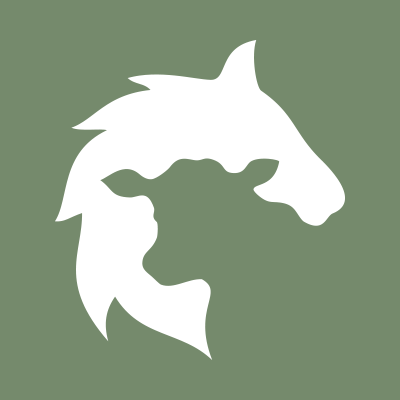Small Ruminants Newsletter – September 2018
PARASITE CONTROL
The veterinarians of Central Ontario Veterinary Services are happy to help you develop a parasite control program that is suited to your flock and their living situation. The fall is an excellent time to consider parasite control in sheep flocks as many flocks are nearing the end of their pasture season. Deworming sheep when they come off pasture will help to ensure that they go through the winter with a low parasite burden. This is important as high parasite burdens can debilitate ewes in the last month of pregnancy.
We recommend monitoring parasite burdens with fecal egg counts. In Ontario, these are best performed in July and August. In the fall, fewer eggs are shed, so fecal egg counts may not accurately reflect parasite burdens. While there is no “one-size-fits-all” parasite control strategy, most flocks will benefit from deworming at housing in the fall. Our veterinarians would be happy to discuss parasite control for your flock when we are out in the fall to perform pregnancy diagnosis by ultrasound.
GENERAL PRINCIPLES
- Make sure that each animal is actually receiving an effective dose. Dose for the largest sheep in the group, and ensure that if given orally the drug is not spit out. Use drugs that are licensed for use in Canada and administer the drugs by the route described on the label.
- Deworm new additions to the flock on first arrival with ivermectin and then with a bezimidizole. This will reduce the chance of introducing parasites that are resistant to one of these drug groups. Do not forget to deworm new rams prior to introducing them to the flock.
- A newer recommendation is to allow sheep to graze their pasture for 2 days after deworming before bringing them in for the winter. This ensures that the sheep will ingest a small number of susceptible parasites from their pasture, ensuring that they are not left with only resistant parasite loads throughout the winter.
- Pasture that has not been grazed by sheep in the last year is now considered clean. Any larvae that overwintered on the pasture will die out by July if they are not consumed by sheep.
- Pasture that has been grazed by cattle or horses after sheep is also considered clean for sheep. The other animals will ingest the larvae and sheep parasites will not mature properly within cattle or horses, so no new eggs will be shed.
SOME AVAILABLE DEWORMERS
IVERMECTIN
The most commonly used deworming drug licensed for sheep in Canada. It is available as a drench or injectable. A drench is preferred, as it delivers high levels of drug to the gastrointestinal tract and should lead to more complete killing of parasites. Resistance to ivermectin has been documented in Ontario.
FENBENDAZOLE
Licensed for use in cattle and horses, it is effective at removing adults and some larval stages in sheep. Resistance occurs in Ontario, and can develop quickly. Use in sheep is extra-label and requires a veterinary prescription.
ALBENDAZOLE
Similar to fenbendazole but it can harm the foetus in the first 1/3 of gestation. It should not be used in sheep during the breeding season or early pregnancy. Use of albendazole in sheep is also extra-label and requires veterinary prescription.
LEVAMISOLE
No longer available in commercially in Canada. Some veterinarians have had it compounded by pharmacies. It is potentially toxic, and dosing must be accurate to avoid this. It is not effective against larval stages.
CLOSANTEL
This drug is now available in Canada and has activity against liver flukes and Haemonchus. It is not effective against other gastrointestinal nematodes, so you need to know what worms are affecting your flock. This requires veterinary advice.
STARTECT
A combination of abamectin and derquantel for use in flocks where anthelmintic resistance has been confirmed, and has now been approved in Canada.
The veterinarians of
Central Ontario Veterinary Services
will work with you to choose the best deworming drug
at the right time of year to achieve optimum parasite control in your flock.
Please ring 705-722-3232 to set up an appointment
for a flock health consultation visit this fall.

For more helpful resources, check out our Fact Sheets and Small Ruminants Flock & Herd Health Plans pages.
